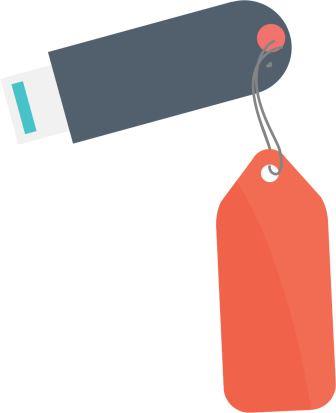USB (Universal Serial Bus) storage devices are very convenient to transfer data between different computers. You can plug it into a USB port, copy your data, remove it and be on your way. Unfortunately this portability, convenience and popularity also brings different threats to your information.
Data thefts and Data leakage are everyday news now! All these can be controlled or minimized with care, awareness and by using appropriate tools to secure the information.
Threats
1.Malware Infection
- Malware Spreads through USB storage devices. Somebody may intentionally sell USB storage devices with malware to track your activities, files, systems and networks.
- Malware may spread from one device to another device through USB Storage Devices using autorun.exe, which is by default enabled.
2.Unauthorized Usage
Somebody may steal your USB Devices for Data.
3. Baiting
Somebody intentionally leave USB devices at your Desk or Place with
Malware
How to stop Data Leakage via USB storage?
- Design and adopt a good security policy to limit the usage of USB Storage
devices.
- Monitor the employees what they are copying.
- Implement Authentication, Authorization and Accounting to secure your information.
What to do when you lose the Device?
- If you have stored any personal or sensitive information inside the USB drive like passwords etc, immediately change all passwords along with security questions and answers provided during any account creation [There may be chances that hacker can retrieve your online account logon information by using data in the stolen drive].
- Also ensure that all security measures have been taken against the data lost.
How to stop Device theft ?
- Always secure the drive physically by tagging it to a key chain.
- Never leave your drive unattended anywhere.
- Never keep sensitive information with-out encryption.
Mobile as USB
The mobile phones can be used as USB memory devices when connected to computer. A USB cable is provided with the mobile phone to connect to computer.
- When a mobile phone is connected to a personal computer, scan the external phone memory and memory card using an updated antivirus.
- Take regular backup of your phone and external memory card because if an event like a system crash or malware penetration occurs, at least your data is safe.
- Before transferring the data to Mobile from computer, the data should be scanned with latest Antivirus with all updates.
- Remember to remove the USB connection from your computer before you walk away.
- Never forward the virus affected data to other Mobiles.

